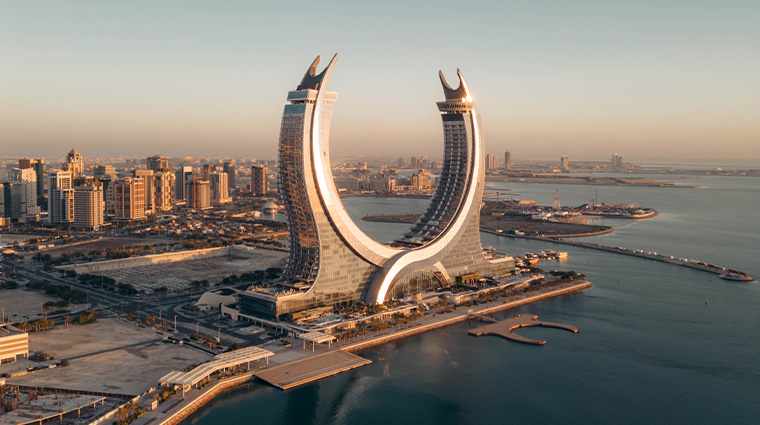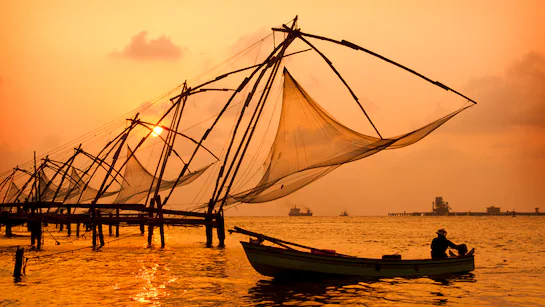TL;DR
Gladstone is a hidden gem on Queensland’s east coast, perfect for travelers seeking a blend of natural beauty, industrial heritage, and relaxed coastal vibes.
From exploring stunning botanic gardens and scenic lookouts to island adventures and rich maritime history, this guide offers everything you need to enjoy your visit. Learn where to stay, how to get around, the best times to visit, money-saving tips, and essential safety advice—plus insider local tips to make your trip unforgettable.
Jump to Things to See and Do | Where to Stay | Typical Costs & Budgets | How to Get There & Around | How to Stay Safe | FAQ
Must-See Places & Things to Do in Gladstone
As someone who’s explored Gladstone extensively, I highly recommend a mix of nature, history, and adventure to get the full experience.
Explore East Shores Precinct & Spinnaker Park
This beautifully landscaped waterfront area is my go-to spot for a family-friendly day out. You’ll find walking paths, BBQ areas, and the lively Zero-Level Water Park where kids can splash about. Evening visits reveal a magical scene with vibrant LED light shows across the park’s fountains—perfect for photo ops or a relaxed sunset picnic.
Discover the Gladstone Regional Art Gallery & Museum
Set in a charming historic building, this museum provides a deep dive into Gladstone’s cultural and industrial heritage, plus rotating art exhibitions from local talents. It’s a fascinating stop, especially if you want to understand how industry and art coexist in this evolving city.
Go Hiking at Mount Larcom
For panoramic views of Gladstone and beyond, the Mount Larcom hike is unbeatable. The 4–5 hour return trail is challenging but immensely rewarding with tranquil bushland and incredible lookout points. Bring plenty of water and decent footwear—it’s nature at its best!
Take a Gladstone Harbour Cruise
I found the guided cruise around Gladstone Harbour an exceptionally relaxing way to see the industrial port’s scale alongside natural coastal beauty. Expect insightful commentary on the city’s maritime history and stunning views of nearby islands like Curtis Island and the heritage-listed coral cays of the Great Barrier Reef.
Visit Tondoon Botanic Gardens
This serene garden features native Australian flora, rainforest sections, and scenic walking trails. It’s a fantastic spot for relaxed picnics or wildlife spotting—and entry is free. The visitor center provides great educational resources on local conservation efforts.
Witness Marine Magic on Heron and Wilson Islands
Accessible by ferry, these islands offer world-class snorkeling and diving experiences with turtles, reef sharks, and rays. Staying overnight at eco-resorts here is a bucket-list experience for nature lovers. Booking in advance is essential, especially during peak season.
Scenic Lookouts and Industrial Views
Don’t miss Auckland Hill Lookout for sweeping harbor views or Queensland Alumina Limited (QAL) Viewing Platform for a fascinating industrial perspective. The mix of rugged natural beauty with cutting-edge industry defines Gladstone’s unique character.
Where to Stay in Gladstone
From my own stays across Gladstone, here’s where I’d recommend for comfort, convenience, and local flavor:
Typical Costs and Budgeting Tips
Planning your budget smartly can make all the difference. Based on recent insights:
Money-Saving Tips
- Book tours and cruises online in advance for discounts and to secure spots during peak seasons.
- Visit free attractions like botanic gardens, lookouts, and museums on designated free entry days.
- Take advantage of public BBQ areas in parks like Spinnaker Park to save on dining out.
- Use local bus services rather than taxis for short distances within the city.
- Travel during the shoulder seasons (March-May or September-November) for better rates on accommodation and fewer crowds.
How to Get There & Get Around Gladstone
Getting to Gladstone
Gladstone Airport connects via regular flights from Brisbane, which is roughly a one-hour flight. Driving the scenic Bruce Highway from Brisbane takes around six hours, offering a great road trip experience. Queensland Rail services also provide train access to Gladstone.
Getting Around Town
For city exploration, buses operate reliably, but to explore nearby islands or remote lookouts, a rental car or organized tour is advisable. Biking is also popular around waterfront precincts, and ferries serve island access especially to Heron and Curtis Islands.
Best Time to Visit Gladstone
The shoulder seasons, autumn (March to May) and spring (September to November), bring mild, comfortable weather and fewer tourists. These times are my personal favorites for outdoor activities—warm enough for snorkeling but without the summer humidity. Peak summer months can be hot and humid, and some sites may be busier.
How to Stay Safe While Visiting Gladstone
Safety is paramount when enjoying Gladstone’s natural and industrial environments. Here are some pro tips:
- Water Safety: Swim only in lifeguarded beaches and follow local advice about marine wildlife and crocodile warnings in some northern areas.
- Sun Protection: Queensland sun is fierce—wear hats and sunscreen, and stay hydrated.
- Industrial Areas: Respect signs in industrial zones and ports—these areas can be hazardous.
- Wildlife: Observe wildlife from a distance, especially on islands and in bushland.
- Emergency Contacts: Dial 000 for emergencies in Australia. Local police station: +61 7 4976 0099.
Around the Area & Tours Worth Taking
Gladstone’s surroundings enhance its appeal tremendously. Take day trips or tours to:
- Agnes Water & Town of 1770 – Queensland’s northernmost surf beaches and quaint coastal towns with great dining and cultural events.
- Great Barrier Reef Islands—including Heron, Lady Musgrave, and Wilson Islands accessible by boat or plane for pristine snorkeling and reef exploration.
- Curtis Island—enjoy rugged coastlines, scenic walks to Conner Bluff Lookout, and wildlife encounters.
- Historic tours of HMAS Gladstone II and local museums for a glimpse into maritime and military history.
Booking local guided tours enhances your experience with insider knowledge and access to otherwise hard-to-reach spots.
Recommended Length of Stay
For a fulfilling experience, I suggest spending at least 2 to 3 full days in Gladstone. This allows you to explore key sites, enjoy outdoor activities, and take a day trip to nearby islands or towns without feeling rushed.
Frequently Asked Questions About Visiting Gladstone
What are the top things to do in Gladstone for families?
Families love East Shores Water Park, Spinnaker Park for picnics, and the Gladstone Regional Art Gallery & Museum. The Tondoon Botanic Gardens also offer kid-friendly exploration with wildlife spotting and shaded walking trails.
How do I get from Gladstone to the Great Barrier Reef islands?
Ferries and boat tours depart regularly from Gladstone Marina to islands like Heron and Wilson Islands. For more exclusive access, small plane charters are also available.
Is Gladstone safe for tourists?
Yes, Gladstone is safe when basic precautions are taken. Always swim at lifeguarded beaches, heed crocodile warnings, follow safety signs in industrial areas, and protect yourself from sun exposure.
What is the best season to visit Gladstone?
Spring (September to November) and autumn (March to May) offer mild temperatures, fewer crowds, and ideal conditions for outdoor activities and island tours.
What is the cost of a typical day trip or tour in Gladstone?
A guided harbor cruise or day snorkeling tour usually ranges between AUD 50 and AUD 150 depending on the destination and inclusions.
WakaAbuja has made every effort to ensure that the information in this post was correct at the time of publication. However, we do not assume any liability caused by errors such as pricing, hours, or location details.
Please consult official websites or social media pages for the most up-to-date information.




